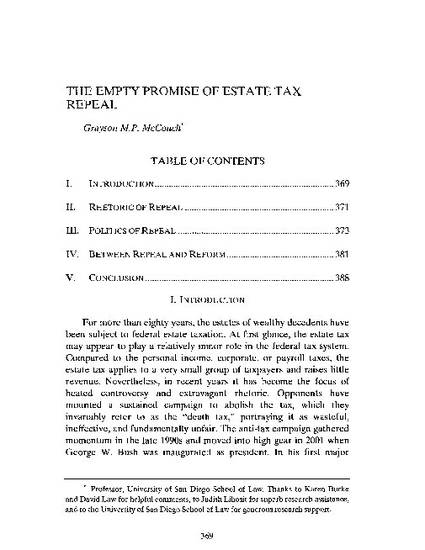
The terms of the debate over the estate tax have been framed largely by abolitionists who have propounded an antitax message that portrays the estate tax as unambiguously harmful and threatening to ordinary families and small businesses. The attack on the estate tax is linked to a larger agenda of eliminating taxes on capital and capital income and dismantling the progressive elements of the federal tax system. The slogan of estate tax repeal, while effective in mobilizing antitax sentiment, makes no sense as a matter of tax policy because it downplays revenue costs, distributional effects, administrative concerns, and consequences for the rest of the tax system. The 2001 Act illustrates the gap between the abolitionists' simplistic antitax agenda and the complex reality of tradeoffs among competing tax and spending priorities. The estate tax cuts enacted in 2001 imply large revenue losses as well as a shift in tax burdens from the very rich to the middle class and from current taxpayers to future taxpayers. This appears to be a step in precisely the wrong direction, given growing inequalities of income and wealth and a looming fiscal gap.
